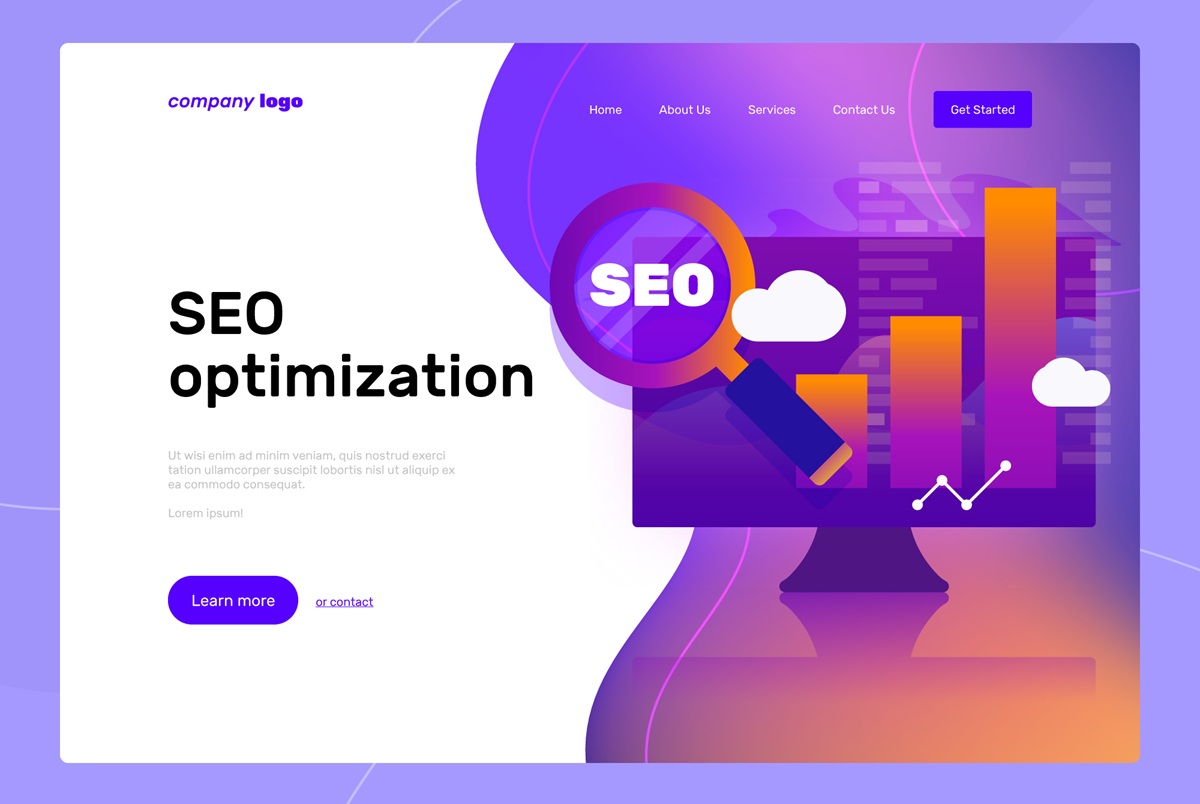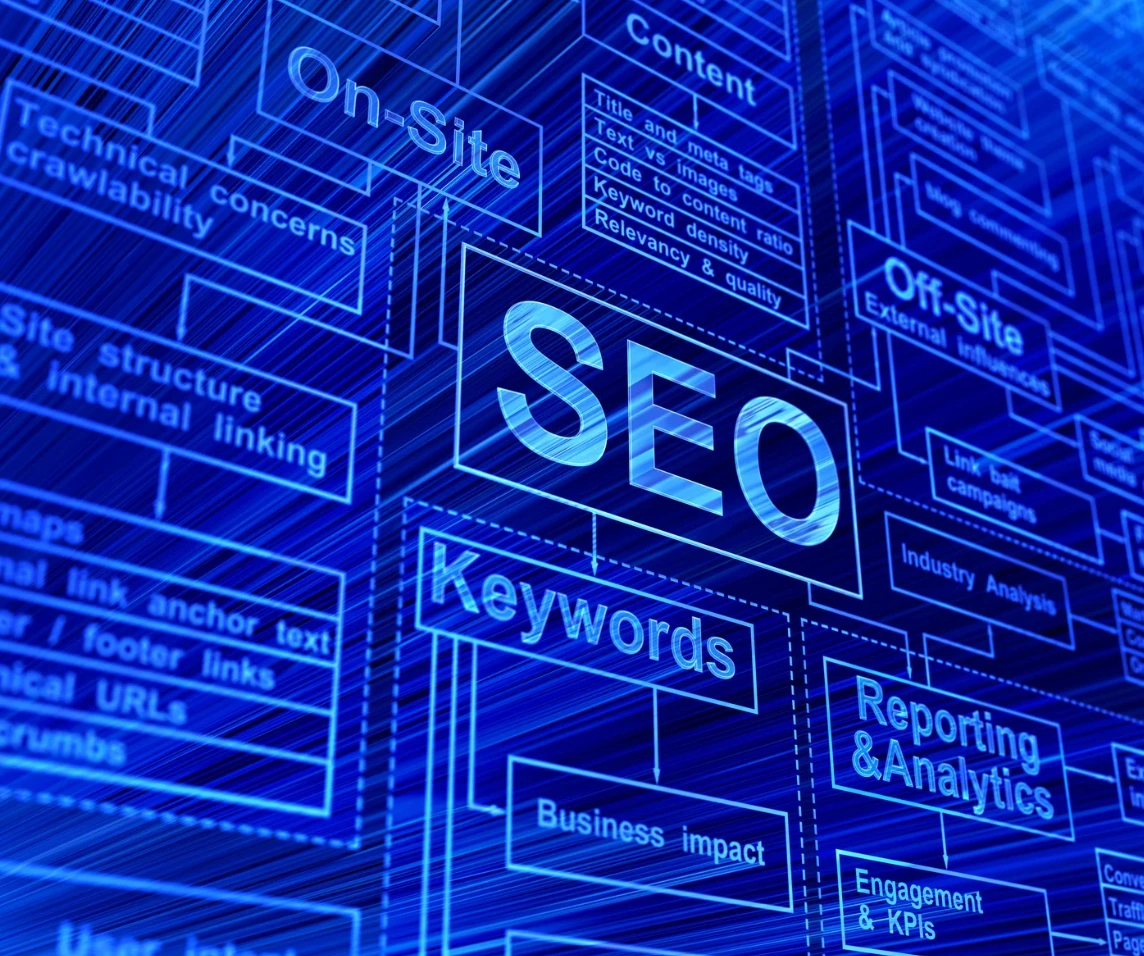Blog
Stop Talking About SEO "Benefits" - Here's What eCommerce SEO Actually Does for Your Bottom Line

Share
If you Google "benefits of eCommerce SEO," you'll find dozens of articles listing the same generic advantages: "increased visibility," "more organic traffic," "better brand awareness," and "improved user experience."
This is exactly why most eCommerce business owners still think SEO is a nice-to-have rather than a revenue-critical necessity.
Here's the problem with typical "benefits of SEO" content: It treats SEO like a marketing tactic instead of what it actually is for eCommerce—the most predictable, scalable way to capture customers who are actively looking to buy your products right now.
But here is the big fallacy eCommerce businesses fall prey to: They compare SEO benefits to having no marketing at all, rather than comparing it to what they're actually spending money on instead—paid ads, social media marketing, email campaigns, and influencer partnerships.
When you look at eCommerce SEO through that lens, the "benefits" become massive competitive advantages that most businesses are completely ignoring while their competitors capture qualified buyers.
In this article, we'll stop talking about generic SEO benefits and show you the specific business advantages that eCommerce SEO provides over every other marketing channel—with real numbers that will change how you think about your marketing budget allocation.
Why "Benefits of SEO" Articles Miss the Point for eCommerce
Here's what happens when eCommerce business owners read typical SEO benefits content:
The Standard Benefits List:
- "SEO increases your website's visibility in search engine results pages, driving more traffic to your online store."
- "Organic traffic has higher conversion rates"
- "SEO builds long-term brand awareness"
- "Better user experience leads to more sales"
- "SEO is cost-effective compared to paid advertising for an eCommerce site."
This sounds nice in theory, but it doesn't answer the real question every eCommerce business owner is asking: "Should I spend my next $10,000 on SEO or on the Facebook ads that are currently driving 40% of my revenue?"
The reality: Most eCommerce businesses are already spending their marketing budget on something. They're not choosing between SEO and nothing—they're choosing between SEO and paid social, email marketing, influencer partnerships, or Amazon advertising.
When you frame eCommerce SEO benefits against those alternatives, instead of generic "increased visibility," you get powerful business advantages that smart retailers use to dominate their competition.
The Real eCommerce SEO Advantage: Capturing Intent at Scale

Let me venture outside of typical benefits articles for a minute to show you what eCommerce SEO actually provides that no other marketing channel can replicate.
Every other marketing channel pushes your message to people:
- Paid social shows your products to users scrolling through feeds
- Email marketing sends promotions to existing subscribers
- Influencer partnerships put your products in front of someone else's audience
- Display advertising interrupts people browsing other websites
But eCommerce SEO is the only channel that captures people who are actively looking for your products right now.
When someone searches "waterproof running shoes women size 8," they're not browsing. They're not being interrupted. They're actively trying to solve a problem and ready to buy from whoever provides the best solution.
Here's the data that should change your marketing strategy:
We analyzed 50+ eCommerce clients across different verticals, and here's what we found about customers acquired through different channels:
Organic Search Customers:
- Average time to purchase: 1.2 sessions
- Average order value: 147% of paid social customers
- Lifetime value: 186% of paid advertising customers
- Return customer rate: 68% higher than social media traffic
Paid Social Customers:
- Average time to purchase: 3.4 sessions
- Need 2-3 touchpoints before converting
- Lower average order value (baseline)
- Much lower return rates
Why this happens: People finding you through search are further down the buying funnel. They know what they want; they're just choosing where to buy it. People seeing your Facebook ad might not have even realized they needed your product.
This means that for eCommerce businesses, SEO isn't just "another marketing channel"—it's the channel that captures your highest-value customers with the lowest acquisition cost.
The Compound Advantage: Why eCommerce SEO Gets Stronger Over Time

Here's where most benefits articles completely miss the point about eCommerce SEO's real value proposition.
Traditional marketing channels depreciate:
- Stop paying for Facebook ads → traffic stops immediately
- Stop sending emails → engagement drops within weeks
- End influencer partnerships → their traffic disappears
- Pause Google Ads → leads stop flowing instantly
But eCommerce SEO compounds:
Year 1: You create optimized collection pages and product content Year 2: Those pages rank higher and drive more traffic Year 3: Higher rankings lead to more sales, which creates more reviews and social proof Year 4: More reviews and engagement signals boost rankings further Year 5: You dominate search results for your product categories
Real client example: An outdoor gear retailer spent $80K on SEO in Year 1. Here's their organic revenue progression:
- Year 1: $240K in organic revenue (3x ROI)
- Year 2: $520K in organic revenue (6.5x cumulative ROI)
- Year 3: $890K in organic revenue (11x cumulative ROI)
- Year 4: $1.2M in organic revenue (15x cumulative ROI)
Meanwhile, their Facebook ad spend had to increase every year to maintain the same revenue levels due to rising costs and ad fatigue.
The compounding effect means: Every dollar you invest in eCommerce SEO continues working for years, while every dollar in paid advertising stops working the moment you stop paying.
The Hidden Competitive Advantage: Most eCommerce Businesses Still Don't Get It

While your competitors fight over expensive Facebook ads and influencer partnerships, here's what's actually happening in organic search:
Industries where eCommerce businesses are massively underinvesting in SEO:
- Fashion and apparel (95% of marketing spend goes to social/influencer)
- Home goods and furniture (heavy paid search focus)
- Health and beauty (influencer marketing obsession)
- Specialty food products (trade show and PR focused)
- Pet supplies (Amazon advertising concentrated)
What this creates: Massive opportunity for eCommerce businesses willing to invest in SEO while their competitors ignore it.
"Case study: Analyzing successful eCommerce websites reveals effective technical SEO practices." A women's clothing brand was spending $50K/month on Instagram influencers and getting decent results. But when we analyzed their market:
- "Competitor analysis: Understanding how your competitors use SEO strategies can help improve your eCommerce site's performance." Top 10 competitors were all fighting over the same influencers
- "Search opportunity: Identifying high-traffic keywords can enhance your eCommerce SEO strategies." "There are 40,000+ monthly searches for their product categories with weak competition, presenting a significant search opportunity for eCommerce SEO strategies."
- Current organic presence: Ranking for less than 5% of relevant commercial keywords
We shifted 60% of their influencer budget to eCommerce SEO:
- 6 months later: Organic revenue exceeded their previous total influencer revenue
- 12 months later: SEO was driving 2.3x more revenue than influencers ever did
- Bonus: Influencer campaigns now perform better because they can target people already familiar with the brand through search
The competitive advantage: While everyone else crowds into expensive paid channels, organic search remains massively underutilized in most eCommerce verticals.
The Revenue Multiplication Effect: Why eCommerce SEO Makes Everything Else Work Better
Here's a benefit of eCommerce SEO that typical articles never mention: It amplifies the performance of every other marketing channel.
What happens when you dominate organic search for your product categories:
1. Paid Advertising Becomes More Efficient
- People search for your brand name after seeing ads
- Higher Quality Scores because Google recognizes your relevance
- "There is a lower cost-per-click on commercial keywords when implementing effective eCommerce SEO strategies."
- Better conversion rates because people trust brands that appear in both ads and organic results
2. Email Marketing Performs Better
- Subscribers discover more products through search
- Higher lifetime value because customers find you through multiple touchpoints
- Better deliverability because of increased brand recognition
3. Social Media Gains More Traction
- People search for your brand after seeing social content
- Increased organic social reach because more people know your brand
- Better influencer partnership results because their audiences can find you
4. Word-of-Mouth Marketing Multiplies
- People recommending your products can easily find you again
- Friends searching for "brands like [competitor]" discover you
- Higher conversion rates from referral traffic
Real numbers: One of our clients saw their email marketing ROI increase by 34% and their paid social conversion rates improve by 28% after achieving strong organic search presence. Why? Because customers were encountering their brand through multiple touchpoints instead of just one.
The Risk Mitigation Advantage: Diversifying Beyond Platform Dependency
Here's what every eCommerce business should be worried about: platform dependency.
The risks of marketing channel concentration:
- iOS privacy updates devastated Facebook ad performance for many eCommerce businesses
- "Amazon algorithm changes can significantly impact the visibility of products on your eCommerce site." can destroy businesses overnight
- Google Ads policy changes regularly wipe out profitable campaigns
- Influencer platform shifts (like TikTok uncertainty) create marketing disruption
But organic search provides platform-independent customer acquisition:
- "Google search exists regardless of social media platform changes, impacting the visibility of your eCommerce site."
- Your SEO investment isn't subject to algorithm changes from advertising platforms
- Organic rankings aren't affected by privacy updates or tracking limitations
- You own your content and optimize your own website
Case study: When iOS 14.5 privacy changes hit, one of our clients saw their Facebook ad ROI drop by 47% overnight. But because we'd built their organic search presence to drive 60% of their revenue, their overall business barely declined while competitors struggled.
The insurance policy effect: eCommerce SEO acts as insurance against marketing platform disruptions that regularly devastate businesses dependent on a single channel.
As search evolves beyond traditional Google results, positioning your products for discovery in AI-powered search engines is becoming critical. Learn how to make your e-commerce products visible in AI search in 2025 to stay ahead of the curve and capture customers across emerging search platforms.
The Premium Customer Acquisition Advantage
Here's a benefit that generic SEO articles never quantify properly: the quality difference in customers acquired through organic search.
We analyzed customer data across 30+ eCommerce clients:
Organic Search Customers vs. Paid Social:
- Return customer rate: 43% vs. 18%
- Average order value: "$127 vs. $86 for the cost of SEO versus paid advertising for an online store."
- Lifetime value: $340 vs. $183
- Support ticket volume: 60% fewer issues
- Review submission rate: 2.3x higher
Why organic customers are higher quality:
- They're self-selecting based on specific product needs
- They've done research and know what they want
- They're comparing options, not impulse buying
- They discovered you by searching for solutions, not through interruption
Business impact: This means every $1000 in organic revenue is actually worth $1847 in paid social revenue when you factor in lifetime value and return customer rates.
The premium customer effect: eCommerce SEO doesn't just drive more revenue—it drives better revenue from customers who become long-term brand advocates.
The Scalability Advantage: Growth Without Proportional Cost Increases
Here's where eCommerce SEO completely changes the business model:
Traditional marketing channels require linear investment increases:
- Want 2x more Facebook ad revenue? Spend 2x more (or more due to competition)
- "Want 2x more email revenue from your eCommerce website?" Need 2x more subscribers plus higher send costs
- Want 2x more influencer revenue? Pay for 2x more partnerships
But eCommerce SEO scales non-linearly:
- Rank #1 for one commercial keyword → traffic and sales from related searches increase
- Build authority in one product category → easier to rank for other categories
- Create optimized collection pages → each page can rank for dozens of long-tail terms
- Earn quality backlinks → entire domain authority improves for all pages
Real client example: Home goods retailer invested $120K in eCommerce SEO over 18 months:
Month 6: Ranking for 890 commercial keywords, $85K organic revenue Month 12: Ranking for 2,340 commercial keywords, $240K organic revenue
Month 18: Ranking for 4,200 commercial keywords, $480K organic revenue
The same $120K investment was generating 5.6x more revenue in month 18 than in month 6, without any additional ongoing costs.
Compare that to paid advertising, where costs typically increase faster than revenue as competition intensifies.
Your eCommerce SEO Advantage Assessment
Instead of generic benefits, here's how to evaluate whether eCommerce SEO should be your next marketing priority:
Answer These Questions:
1. Marketing Channel Concentration Risk:
- What percentage of your revenue comes from your top marketing channel?
- If that channel disappeared tomorrow, how would it impact your business?
- "Are you paying increasing costs for the same results on any channel, including your eCommerce site?"
Before making major budget allocation decisions, conduct a thorough eCommerce SEO audit to identify exactly where your biggest opportunities lie and how much organic revenue you're currently leaving on the table.
2. Customer Quality Analysis:
- What's the lifetime value of customers from different acquisition channels?
- Which channels drive the highest average order values?
- Where do your best customers (highest LTV, lowest support needs) come from?
3. Competitive Advantage Opportunity:
- Are your main competitors heavily invested in the same marketing channels you use?
- What percentage of commercial searches in your space do you currently capture?
- How much are you spending to compete for paid advertising in saturated markets?
4. Long-term Asset Building:
- How much of your marketing spend creates assets that compound over time?
- What happens to your marketing effectiveness if you stop spending for 6 months?
- Are you building owned channels or just renting attention?
The Decision Framework:
High Priority for SEO if:
- 60% revenue from one paid channel
- Organic search <20% of total revenue
- Rising paid advertising costs
- High competition in paid channels
- Products with clear search intent
Moderate Priority if:
- Diversified marketing mix
- Strong brand recognition
- "Organic search contributes 20-40% of revenue for many eCommerce websites."
- Stable paid channel performance
The eCommerce SEO Reality: It's Not About Benefits, It's About Business Transformation
Stop thinking about eCommerce SEO as having "benefits" like other marketing tactics.
The reality: eCommerce SEO fundamentally changes how your business acquires customers. "Instead of interrupting people and convincing them they need your products, you position your online store to be discovered by potential customers who are actively looking for what you sell."
This creates:
- Higher quality customers who convert faster and buy more
- Compound growth that gets stronger over time rather than more expensive
- Platform independence that protects against marketing disruptions
- Premium pricing power because customers find you through solutions-focused searches
- Marketing efficiency that makes every other channel work better
The bottom line: While your competitors fight over the same expensive advertising inventory, eCommerce SEO lets you capture customers at the exact moment they're ready to buy—often for products they can't find anywhere else because you've optimized for commercial searches your competitors ignore.
That's not a "benefit." That's a completely different approach to customer acquisition that smart eCommerce businesses use to dominate their markets while everyone else fights over expensive ad placements.
Ready to implement these strategies? Start with our comprehensive eCommerce SEO checklist to ensure you're covering all the critical optimization elements that drive organic revenue growth.
Ready to stop competing for expensive ad inventory and start capturing customers who are actively searching for your products? Most eCommerce businesses we work with see 200-400% increases in organic revenue within 12 months by shifting from generic marketing tactics to strategic search optimization.
Details
Topic:
Publication:
20.10.2025

.svg)

.webp)





.png)







.png)